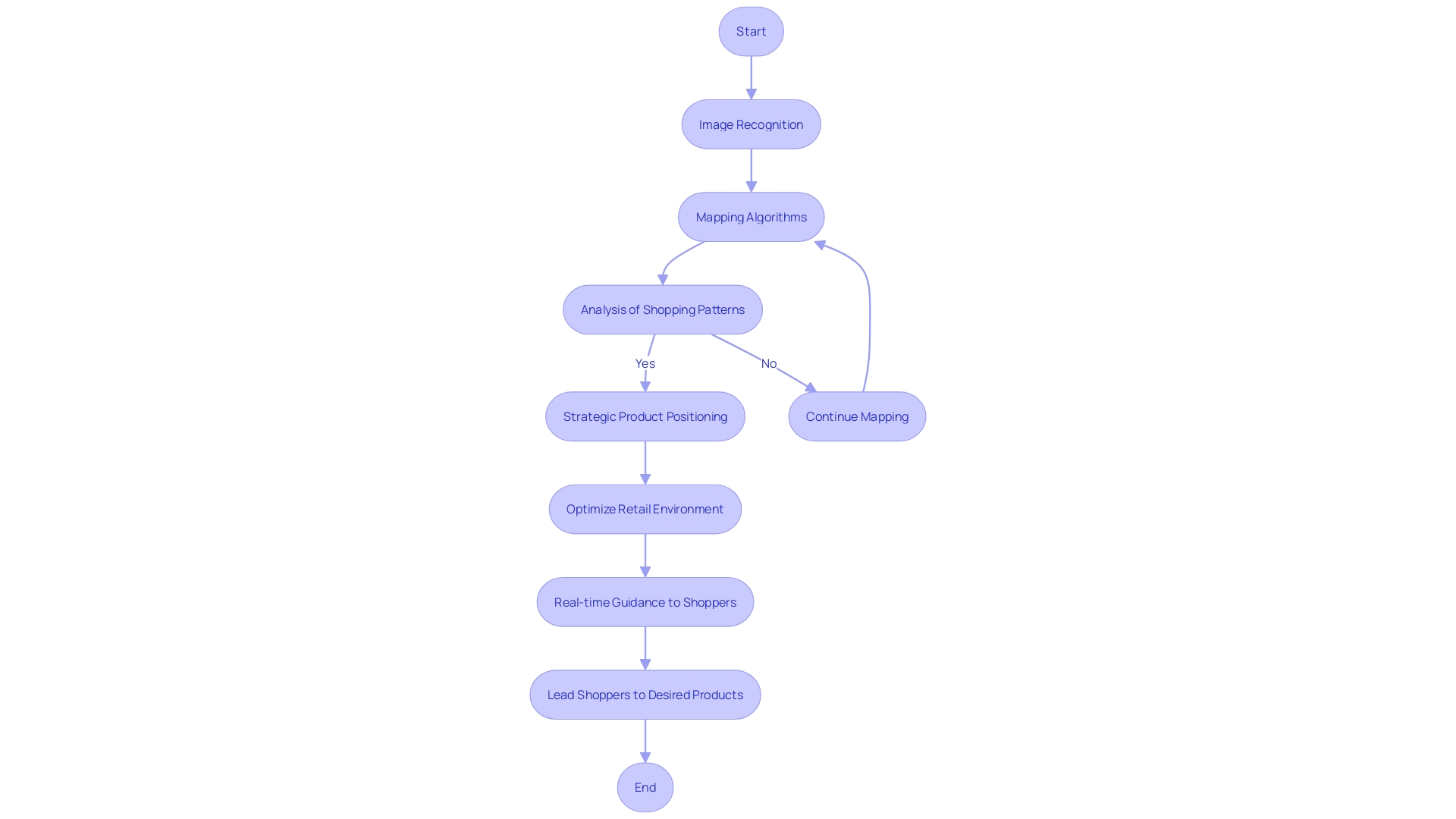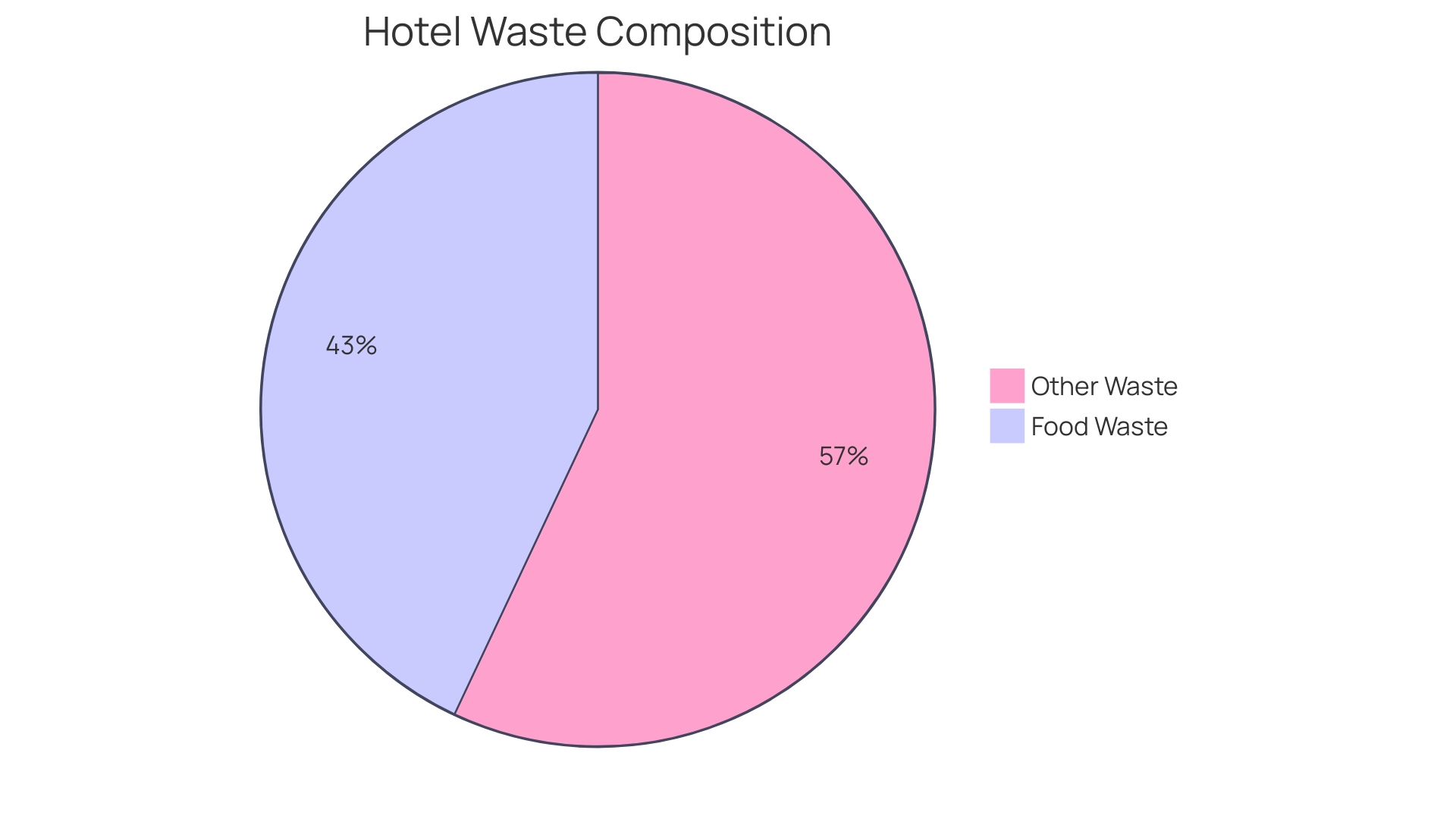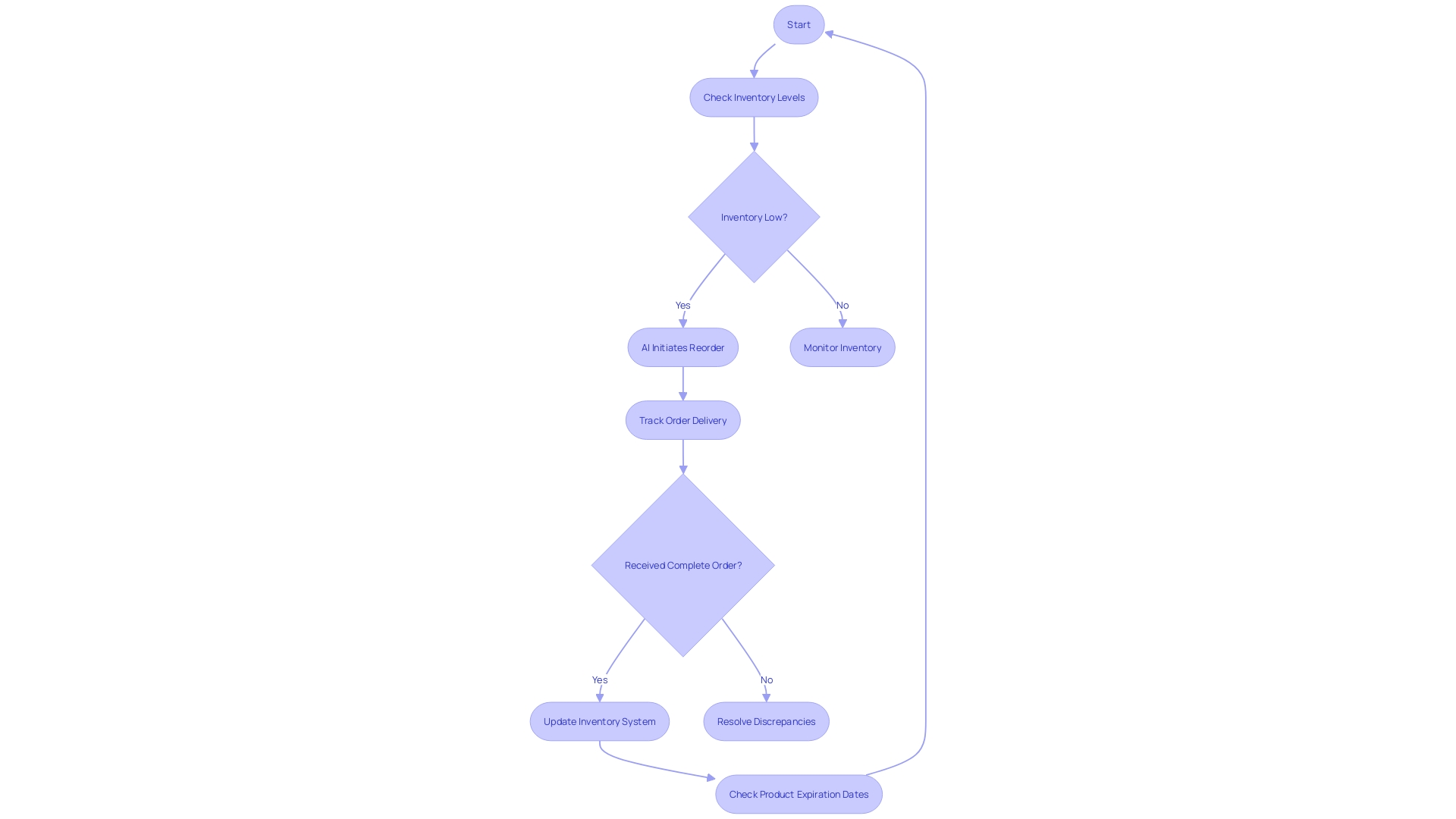Introduction
In the fast-paced world of grocery shopping, AI technology is revolutionizing the customer experience, offering personalization and convenience like never before. From AI-enabled visual search to personalized recommendations and offers, retailers are harnessing the power of AI to streamline the customer journey and enhance satisfaction.
Additionally, AI is transforming supply chain management, optimizing inventory and stock management, improving in-store navigation, and even reducing food waste. With successful implementations and promising future trends, AI is reshaping the grocery shopping landscape, making it more efficient and customer-centric.
Enhancing Customer Experience with AI
In the fast-paced world of grocery shopping, AI technology is a game-changer, offering a level of personalization and convenience that was previously unattainable. Retailers are harnessing AI-enhanced visual search to streamline the customer journey, allowing shoppers to effortlessly locate their desired items.
Wayfair's approach exemplifies this innovation; by analyzing over 40 million product attributes, they enable customers to pinpoint the 'modern yellow sofa' they desire among the vast sea of options. This is achieved through meticulously organized product tags that capture essential characteristics like color, design, and pattern.
AI-enabled products, as defined by the University of Surrey's Sabine Benoit, include a physical component such as a sensor, an intelligence component such as an algorithm, and a connectivity component like Bluetooth. This trio of components synergizes to reduce the cognitive load on consumers, simplifying decision-making processes. For instance, just as Google Maps has transformed outdoor navigation, AI-powered visual search promises to revolutionize the in-store experience by guiding customers to their desired products with unprecedented ease.
Personalized Recommendations and Offers
Artificial Intelligence (AI) in eCommerce is revolutionizing the way we shop online, particularly in the grocery sector. AI does more than just mimic human intelligence; it enhances the shopping experience by personalizing it in ways previously unimaginable. By sifting through and analyzing vast amounts of customer data, including purchase histories, preferences, and browsing behaviors, AI algorithms can curate personalized product recommendations for each shopper.
This level of customization not only aids consumers in discovering new products that resonate with their tastes but also bolsters sales for retailers by nudging customers to consider additional purchases. Moreover, AI's capabilities extend to offering personalized discounts and promotions, which are tailored based on an individual's shopping patterns. This strategic use of AI not only fosters customer loyalty but also heightens satisfaction.
A prime example is a startup that employs a fleet of robots to process online orders. These robots utilize sensor technologies and AI to monitor inventory levels and expiration dates, ensuring quality control and efficient inventory management through machine learning and computer vision. As a testament to Ai's impact, stores equipped with AI are less likely to run out of popular products, thereby enhancing the customer's shopping experience by ensuring that sought-after items are in stock and readily available.
Streamlining Supply Chain Management with AI
The advent of AI in the grocery sector mirrors transformative moments in history, such as the electrification of America. Just as it took decades to realize the full potential of electricity, the impact of AI on supply chain management is unfolding with profound implications. Ai's sophisticated algorithms and predictive analytics are revolutionizing the way grocery retailers manage their inventory.
By integrating historical sales, seasonal patterns, and even the influence of weather, AI provides precise demand forecasts. This ensures that shelves are stocked with the right products at the right time, sharply reducing the instances of overstocking or stockouts, and trimming down waste significantly. The efficiency gained through Ai's analytical prowess is not just about meeting demand, but about foreseeing it, allowing retailers to stay one step ahead in a highly competitive industry.
Optimizing Inventory and Stock Management
In the dynamic environment of grocery stores, AI-powered visual search technology is revolutionizing inventory and stock management. By harnessing real-time data from strategically placed cameras, sophisticated AI algorithms are capable of monitoring shelf conditions with precision.
They not only identify items that are running low but can also anticipate when products are likely to be depleted. This foresight enables retailers to replenish shelves proactively, thus preventing the frustration of customers facing empty shelves.
Moreover, Ai's analytical capabilities extend to optimizing product placement based on the analysis of customer interactions and preferences, ensuring high-demand items receive the visibility they deserve. The integration of sensors and artificial intelligence, as evidenced by innovative startups, automates the tracking of inventory levels and product expiration dates, streamlining inventory management and quality control with machine learning and computer vision. Such AI-enabled systems embody a trio of essential components: physical devices like sensors, intelligent algorithms, and connectivity solutions, which together enhance the cognitive process inherent to retail operations, from analysis to decision-making. As a result, shoppers benefit from an improved in-store navigation experience, reminiscent of digital conveniences they've grown accustomed to, like Google Maps.
AI-Driven Demand Forecasting and Planning
The integration of AI in grocery retail is akin to the transformative impact of electrification on society. Just as it took decades to fully realize the secondary effects of electrification, which led to mass production and a changed world, the introduction of AI-powered demand forecasting is set to revolutionize the grocery industry.
These predictive models delve into vast datasets, spotting patterns and trends that elude human analysis. By incorporating variables such as past sales, seasonal fluctuations, promotional impacts, and external influences, AI facilitates precise predictions of consumer demand. Consequently, grocery retailers are empowered to fine-tune their stock levels, minimizing waste while adeptly catering to consumer needs.
Improving In-Store Navigation and Product Placement
Leveraging AI technology, retail stores can revolutionize the way customers navigate their aisles. Advanced image recognition paired with sophisticated mapping algorithms enables real-time guidance, leading shoppers directly to their desired products. This integration of AI not only streamlines the shopping journey but also alleviates common in-store frustrations.
Further, through keen analysis of shopping patterns and preferences, AI drives strategic product positioning. By calculating a product's share, which is the presence of a product on the shelf, AI ensures high-demand items are placed where they are most likely to catch the shopper's eye, enhancing visibility and driving sales. As Sabine Benoit from the University of Surrey outlines, the synergy of a physical sensor, an intelligent algorithm, and connectivity, such as Bluetooth, reduces cognitive efforts in decision-making processes, thus optimizing the retail environment for both efficiency and customer contentment.

The Role of AI in Sustainability and Food Waste Reduction
In the realm of grocery retail, AI is a formidable ally against the pressing issue of food wastage. By integrating sophisticated algorithms capable of precise demand forecasting and inventory management, retailers can adeptly sidestep the pitfalls of overstocking, ensuring perishable goods are sold before they spoil.
This technology encompasses AI-enabled products that amalgamate sensors, algorithms, and connectivity, as defined by the University of Surrey's Sabine Benoit. These components collectively decrease the 'cost of cognition,' enhancing analysis and decision-making processes.
A vivid illustration of Ai's impact is the Accor hotel group's initiative, which, as part of the International Food Waste Coalition, harnesses AI to slash food waste by a staggering 50% by 2030. This initiative is not just a boon for sustainability; it also makes significant strides in economic efficiency, given that food waste comprises approximately 43% of a hotel's total waste, averaging nearly 20 tons per annum. Additionally, AI is transforming the shopping experience by simplifying in-store navigation, paralleling the convenience of digital mapping services like Google Maps, enabling customers to swiftly locate desired items on store shelves.

Case Studies: Successful Implementations of AI in Grocery Shopping
In an era where technology is revolutionizing the retail landscape, AI is at the forefront of this transformation, particularly within the grocery sector. Retailers are harnessing AI to not only enhance the customer experience but also to streamline operations with impressive results.
An innovative approach has seen a startup deploy a fleet of robots that process online orders and pick a variety of products, including perishables, with precision and speed. This is made possible through the integration of sensor technology and AI, which meticulously tracks inventory levels and expiration dates, ensuring optimal stock management and quality control.
The benefits of such AI applications are vast. Retailers are leveraging machine learning and computer vision to predict demand and plan inventory, significantly reducing waste and boosting profitability.
These advancements echo the historical practices of shopkeepers who intuitively understood their customers' purchasing patterns. AI, however, elevates this practice, allowing for the analysis of vast amounts of sales data to predict product demand with unprecedented accuracy. As a result, stores are less likely to experience stockouts of popular items, harmonizing the goals of profit maximization and customer satisfaction. This synergy of AI and retail is not just a fleeting trend but a fundamental shift in the industry, mirroring the transformative impact of electrification on society, as highlighted by historical comparisons. It's a strategic evolution that promises to redefine the shopping experience for consumers and the operational efficiencies for retailers.
Challenges and Limitations of AI in Grocery Shopping
Artificial Intelligence, much like the electrification of households and businesses in the early 20th century, brings profound secondary effects that transform industries. The initial challenge is often understanding and harnessing the technology, such as needing high-quality data for AI algorithms to function optimally.
This data serves as the bedrock for accurate predictions and recommendations. However, as AI evolves, so does the necessity to address data privacy and security concerns rigorously.
Moreover, the dynamism of AI technology requires businesses to commit to continuous investment and adaptation. Consider a startup leveraging a fleet of AI-driven robots for inventory management. These robots, equipped with sensor technologies, not only streamline the ordering process but also ensure real-time tracking of inventory levels and product expiration dates. By utilizing machine learning and computer vision, the startup exemplifies how AI can oversee complex processes, setting a precedent for quality control and inventory management that could redefine the retail industry.

Future of AI in Grocery Shopping: Trends and Opportunities
The integration of AI in the grocery sector is not just about immediate convenience; it's about the transformative impact on operational efficiency and customer service. AI-powered voice assistants, for instance, are more than just a hands-free way to place orders.
They represent a shift towards a more interactive and responsive shopping environment, akin to the electrification revolution that slowly, but fundamentally, altered industry and lifestyle. Similarly, automated checkout systems, leveraging AI, are not merely about reducing cashier numbers but about streamlining the entire checkout process, thereby enhancing the customer experience.
AI-enabled products in grocery stores, combining sensors, algorithms, and connectivity, significantly lower the cognitive load on consumers. They simplify decision-making and in-store navigation, much like digital maps have done for outdoor navigation.
This is particularly evident in the use of AI to guide shoppers to their desired products swiftly, reducing frustration and saving time. Moreover, advancements in robotics are set to revolutionize restocking and order fulfillment. AI-powered robots equipped with sensor technologies and artificial intelligence are capable of handling inventory management and quality control autonomously. This not only ensures the constant availability of fresh products but also optimizes the supply chain, reflecting a leap forward similar to the transformative secondary effects of past technological advances.
Conclusion
In conclusion, AI technology is revolutionizing grocery shopping with personalization and convenience. AI-enabled visual search streamlines the customer journey, while personalized recommendations and offers enhance the shopping experience.
Supply chain management benefits from precise demand forecasts, optimized inventory, and reduced waste. Successful implementations include startups using robots for order processing and stock management.
Challenges like data quality and privacy need to be addressed with continuous investment and adaptation. The future of AI in grocery shopping brings exciting trends.
Voice assistants and automated checkout systems create interactive and streamlined environments. AI-enabled products simplify decision-making and navigation, similar to digital maps. Robotics advancements optimize restocking and order fulfillment. In summary, AI reshapes grocery shopping for efficiency, customer-centricity, sustainability, and technology. With successful implementations and promising trends, it is clear that AI is indispensable for enhancing the customer experience and streamlining operations in retail.
Discover how AI can revolutionize your retail business today!





